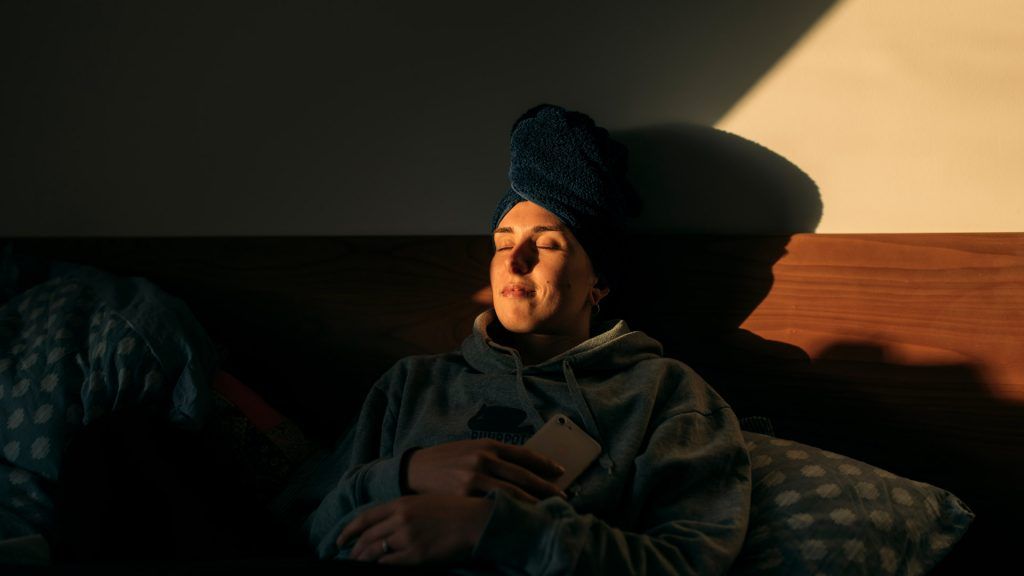
We include products we think are useful for our readers. If you buy through links on this page, we may earn a small commission. Here’s our process.
Psych Central only shows you brands and products that we stand behind.
We’ve found the best apps to help calm your anxious thoughts and feelings.

Anxiety is on the rise in the United States.
During the COVID-19 pandemic, from August 2020 through February 2021, adults with symptoms of anxiety or depression increased from 36.4% to 41.5% in the United States.
Many adults reported how their pandemic-related anxiety caused other issues such as:
Many of us might benefit from some help managing anxiety symptoms. And though apps can’t replace treatment from a mental health professional, they can help relieve the disorder’s effects. From tracking your mood to beginning a mindfulness practice or meditating, there’s an anxiety app out there for you.
Even if you don’t think these apps can help, we encourage you to try them. If you’re still on the fence, consider this: Researchers have found that even a single mindfulness or meditation session can slow your pulse and reduce your mild to moderate anxiety.
Something to keep in mindWhile mental health apps may be beneficial for many people, they are not a substitute for face-to-face therapy if you’ve been diagnosed with an anxiety disorder that requires treatment. Still, apps can be helpful add-ons to treatment, medication, or both.
Anxiety is one of the most common mental health disorders. There are several types of anxiety disorders, including:
Each disorder is characterized by its causes and symptoms. But generally, symptoms of anxiety include:
Anxiety apps work in many different ways to help reduce your anxiety symptoms.
Since relaxation training works to calm the mind, many apps include that aspect. The other way it works is by implementing cognitive behavioral therapy (CBT) and mindfulness techniques to lower anxiety.
Some of the apps offer self-monitoring features where you can monitor your mood periodically by reporting your thoughts and behaviors to increase your level of emotional self-awareness (ESA). When you grow your ESA, you:
If you want to jump directly to the sections for each app, you can click the links below.
To find the right apps, we reviewed numerous contenders, looking at the following:
Although Headspace was originally created for guided meditations, it now includes animations, articles, and videos to support your mental health. The app offers specific guided meditations for:
Headspace takes its app and seriously impacts the world (it has millions of users in more than 190 countries). Their commitment to providing users with scientifically based products includes their seven-person in-house science department and participation in dozens of research studies and numerous partnerships with research institutions.
For example, researchers claim doctors found the Headspace app helpful for anxiety and recommended it as a therapeutic option to help manage one’s symptoms.
Headspace offers a meditation practice for almost every purpose, from quick relief breathing exercises to longer guided or unguided meditations. But it’s more than just a meditation app. It offers sleep aids, focus improvement, productivity builds, and centered fitness options that focus on total body health instead of only mental.
Scientific evidence shows that sleep deprivation might increase symptoms of anxiety. So, if you’re experiencing stress and having trouble sleeping, using an app to improve the latter may also reduce anxiety symptoms.
Year after year, site after site, Calm rates continuously as one of the best apps for sleep. And evidence backs up its effectiveness in helping people sleep better at night and feel less tired during the day.
Besides the wide variety of story styles, from fairy tales to ASMR, Calm has worked with some of the world’s best-known voices. As a result, you can drift off to sleep listening to stories from various celebrities, including:
Plus, if you need a quick catnap to make it through the rest of your day, Calm also has nap sessions.
Lifestyle changes, such as getting more sleep or learning to meditate, can often help improve anxiety symptoms. For example, research from 2019 has shown that yoga and meditation might help reduce stress and anxiety.
But picking up a new, healthier habit can be challenging and that’s where Fabulous may be able to help.
If you pick a “journey” — maybe you want to establish a meditation habit, exercise more, or get to bed earlier — Fabulous will give you the daily steps to make your goal a reality. Its design is more than just annoying reminders that pop up on your phone. The app provides you with a daily coach to help you develop healthy habits and create rituals. In addition, you can participate in challenges against other members or yourself.
Fabulous coaches you daily on the app, helping you develop new habits that you can take with you throughout the rest of your days. In addition, it enables you to become self-sufficient by presenting challenges that point you toward your goals.